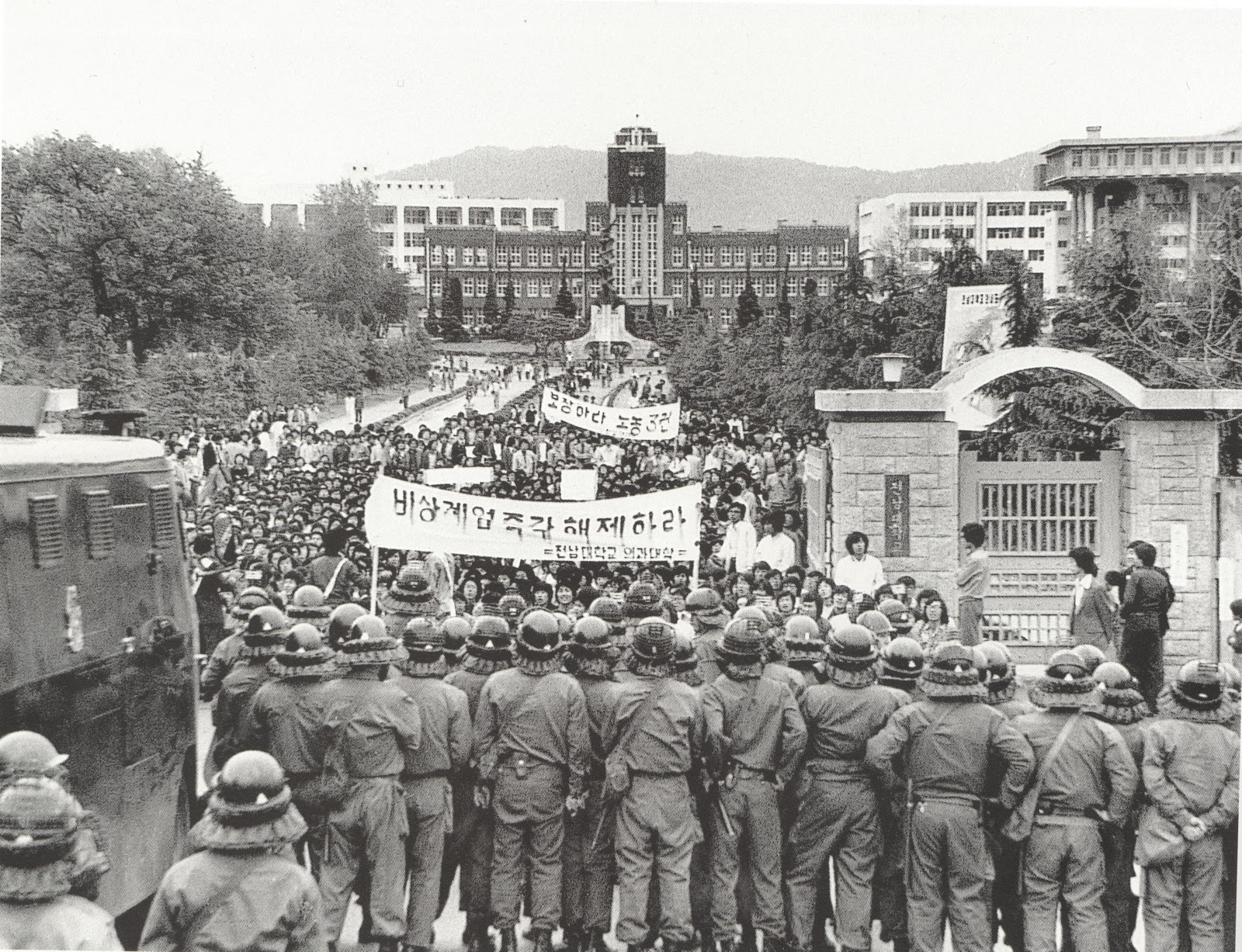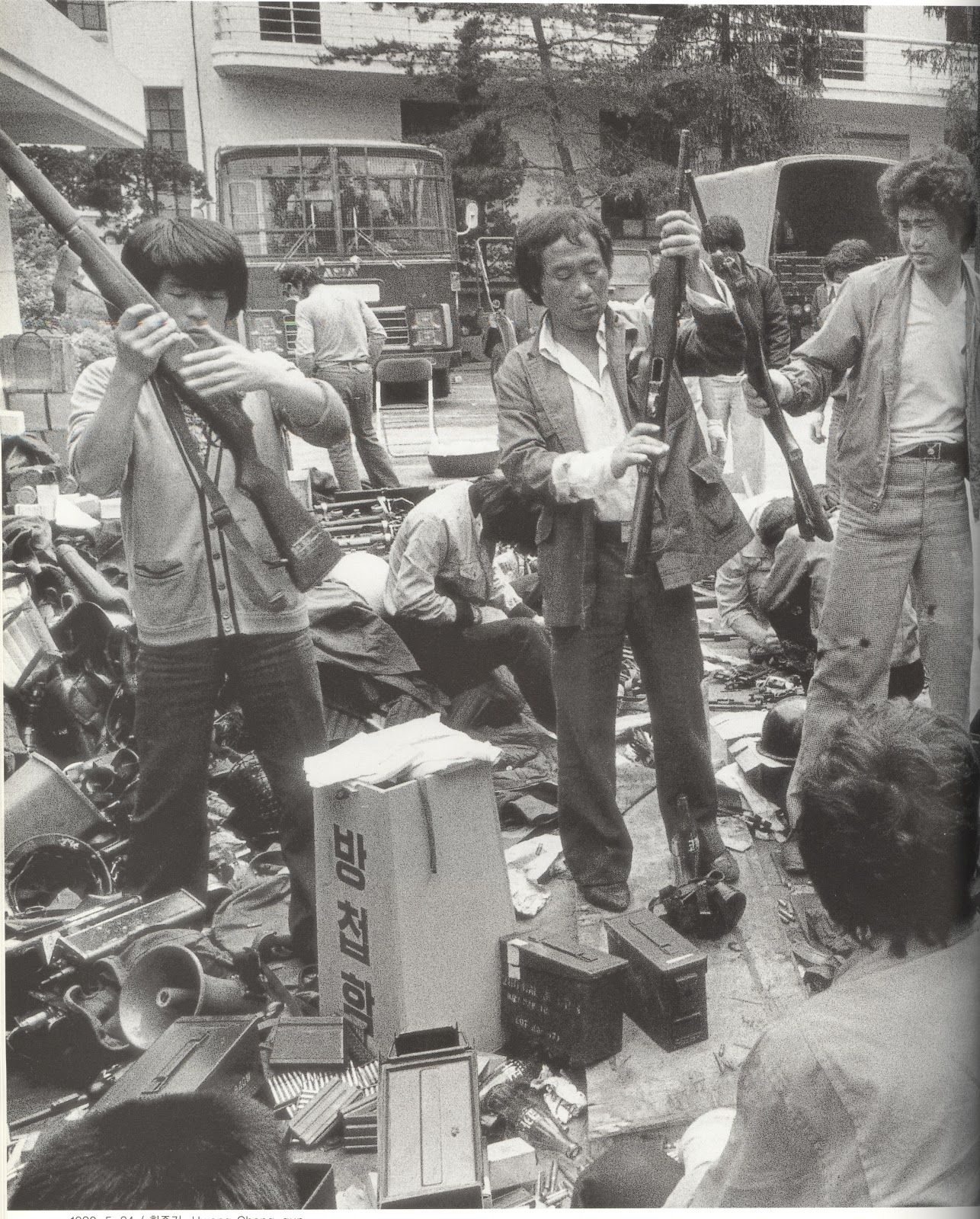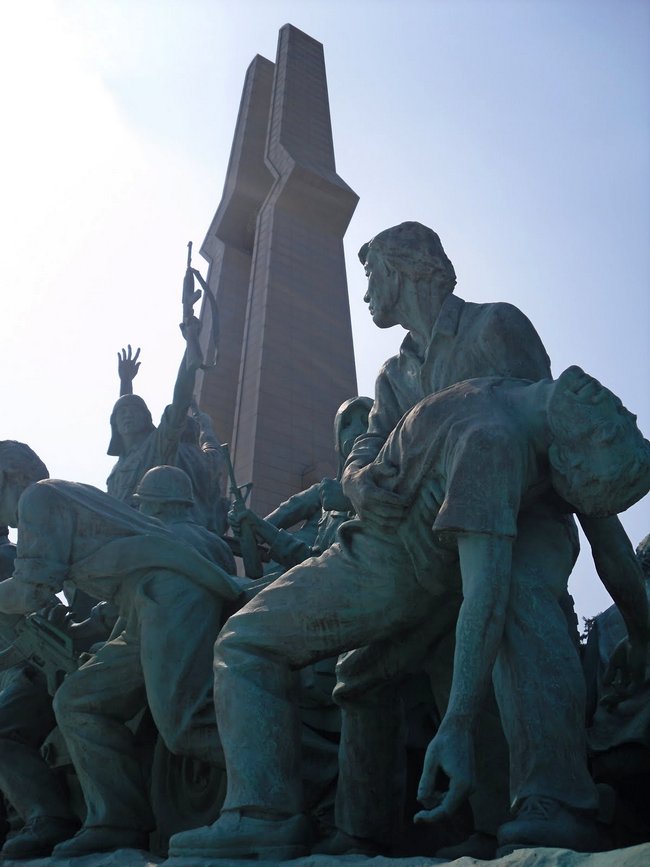
 |
||||
|---|---|---|---|---|
| Volume 49 Number 10, May 18, 2019 | ARCHIVE | HOME | JBCENTRE | SUBSCRIBE |

Student march at Chonnam University, May 18,
1980.
May 18 marks the 35th anniversary of the heroic Kwangju People's Uprising which took place in the city of Kwangju, south Korea, from May 18-28, 1980. The Kwangju People's Uprising was a revolutionary rising undertaken to oppose the brutal military dictatorship of General Chun Doo-hwan. Chun had come to power through a US-engineered military coup that overthrew the government of Choi Kyu-hah, who was acting President following the assassination of military dictator Park Chung-hee in 1979 by the Korean Central Intelligence Agency. Martial law, which had been imposed in parts of south Korea following Park's assassination, was expanded to the entire country on May 17, 1980, with provisions added to specifically close universities, ban political activities and limit freedom of the press.
According to various news and eyewitness reports, the Kwangju People's Uprising was triggered by student demonstrations on the morning of May 18 in defiance of the expanded martial law that sought to crush political dissent amongst the students. The police, however,were unable to check the organised resistance of the people so the Korean Army brought in a special forces unit trained for assault missions to smash the uprising. The special forces unit used tear gas, batons and rubber bullets to try to suppress the student uprising, but workers, shopkeepers and parents took to the streets to defend their children. Then the military opened fire, killing close to 200 people and wounding hundreds more.

Participants in the uprising arm themselves against
attacks by the military.
On May 20, some 10,000 people demonstrated in Kwangju. Due to the widespread militarization of the society, most major workplaces in south Korea had caches of weapons. Protestors seized these weapons along with buses, taxis, and even armoured personnel carriers, forming armed militias to fight the army. On May 21, the special forces were forced to withdraw and the city was taken over by the citizens.
The next five days were a manifestation of the people affirming their rights and exercising control over their circumstances. In the same way in which People's Committees took over from the Japanese military occupiers of Korea in 1945 and formed the de facto government, so too the people of Kwangju organized themselves into Citizens' Committees to ensure everyone's well-being and security. Food, medical and transportation systems were organized and lively political discussions took place where the people gathered to discuss their future, their opposition to the US occupation of south Korea and the need to end the military dictatorship.
On May 24, 15,000 people attended a memorial service in memory of those who died at the beginning of the uprising at the hands of the special forces. A day later, on May 25, about 50,000 people gathered for a rally in Kwangju and adopted a resolution calling for the abolition of martial law and the release of Kim Dae-jung, who would later become the eighth President of the Republic of Korea and play a significant role in moving forward the north-south dialogue for the peaceful reunification of Korea.

Memorial to the Kwangju People's Uprising
Soon after this, the US government of Jimmy Carter intervened because the Kwangju Uprising was seen as a threat to US strategic interests on the Korean peninsula and Asia. The US ordered the Chun regime to move troops from the De-Militarised Zone (DMZ) separating north and south Korea to re-occupy Kwangju. On May 27, at 3:30 am, the army swarmed Kwangju in Operation Fascinating Vacations.
The people of Kwangju courageously resisted this act of state-terror. In the pitched battles against these soldiers under the command of the US military, thousands of civilians were killed and close to 15,000 people were injured. More than 1,500 people were taken into custody and many were tortured and killed. Seven people were executed and 14 received life-sentences for taking a stand against the US-sponsored military dictatorship and to demand their rights.
While the Kwangju People's Uprising was defeated by this brutality, the people's bravery left an indelible mark and delivered a decisive blow to US imperialism on the Korean peninsula. It signalled a turning point in the struggle of the Korean people's collective striving to rid their nation of the US military occupation of the south. This occupation since the end of the Second World War has brought nothing but misery to the people and has stood in the way of instituting democratic reforms in south Korea as well as the desire of the Korean people to reunify their divided country.